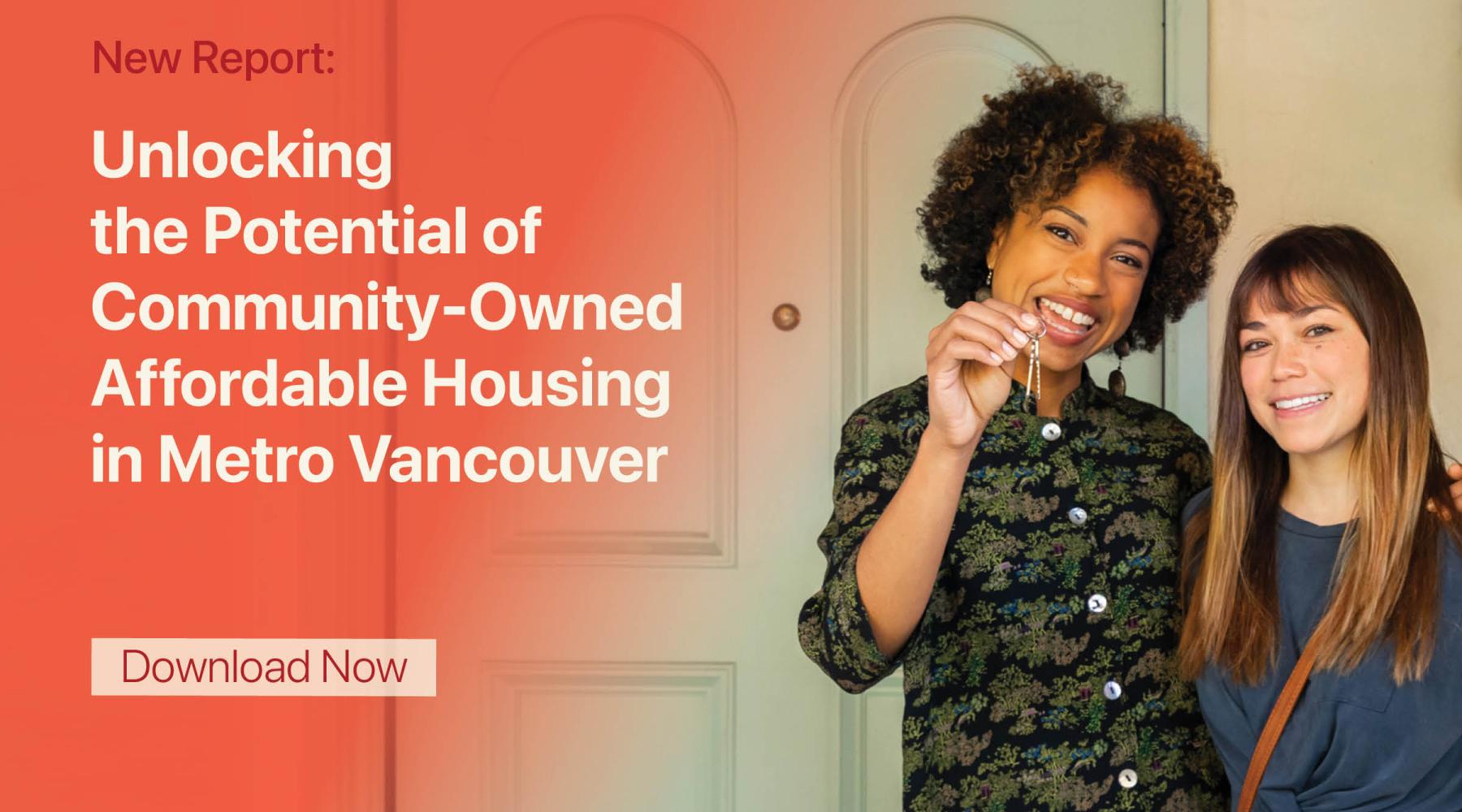Vancouver, BC; November 16, 2023 – A new report released today by Vancity Community Foundation shows that accelerating non-market housing will help dramatically boost affordability across Metro Vancouver for those who need it most.
Genesa Greening, CEO of Vancity Community Foundation, says that housing is a challenge for nearly everyone in Metro Vancouver, but especially for those low-income households who are paying more than 50% of their income on housing and are at extreme risk of homelessness.
The report, "Unlocking the Potential of Community-Owned Affordable Housing in Metro Vancouver", outlines what will happen between now and 2041 if we:
- Maintain the status quo and continue what has been historically built in the region.
- Meet new B.C. government targets and guidelines which would result in 40% of new rental housing being non-market by 2041
- Go all-in, and double down to address the crisis by ensuring 70% of new rental housing is non-market by 2041
"Our modelling shows that the BC Government's new housing targets, programs, and guidelines will make a big difference in Metro Vancouver if they are met, lifting half of the over 62,000 households that are in precarious housing situations today into secure, safe, and affordable housing by 2041," said Greening. "But in order to go all the way, we need to double down and make sure 70% of all new rental being built in Metro Vancouver is non-market by 2041."
The report also found that if Metro Vancouver can meet the BC Government's new targets for non-market housing, renters in the region could save over $4 billion between 2024-2041. If the region commits to boost the non-market share of new rental units to 70% by 2041, that number climbs to over $6.6 billion. Those are savings that would transform the lives of renters, give more time for the things they love, and help to build sustainable and vibrant communities.
"Meeting these targets will be challenging, and will require the commitment of many, but they are necessary. If we want vibrant and sustainable communities where everyone has a place we must restore affordability, especially for those who need it most," said Greening. "It will take the continued and growing commitment of the Federal Government and the Government of BC to support and work with non-profit housing builders and programs like Vancity's Affordable Housing Accelerator Program + Fund.
About Vancity Community Foundation
Vancity Community Foundation was founded on the belief that if we work together, we will have the resources we need to build a thriving, vibrant community.
To get there, we use and leverage financial tools, provide innovative support to non-profit organizations, and advocate for policies that help make life more affordable. Our focus areas in support of addressing growing inequality and lack of affordability include affordable community housing development, renter and wage protections, social and economic innovation, and climate resilience.
Report Highlights
- Currently, more than 10,000 affordable rental units across Metro Vancouver are being lost every year
- Today over 62,000 low-income households pay more than 50% of their income on housing, putting them at extreme risk of homelessness
- By accelerating investment in non-market housing, we can eliminate this loss and realize a net gain of rental units that will help low-income households
- The first non-market scenario involves boosting the non-market share of new rental construction to 40% by 2041 through meeting current targets and guidelines set by the BC Government
- This scenario would create almost 35,000 net new homes that would be affordable for low-income households, enough to lift over half of these households currently living in precarious housing situations into secure, safe, and affordable housing
- At the same time, renters in the region could save over $4 billion between 2024-2041
- The ideal non-market scenario model shows what it would look like if we went even further, doubling down to see the share of new non-market rentals rise to 70% by 2041
- This scenario would create almost 75,000 net new homes affordable for low-income households, more than enough to lift all households that are in precarious housing situations today into secure, safe, and affordable housing
- Here, renters in the region could save over $6.6 billion between 2024-2041
- Realizing these scenarios involves supporting non-profits and community organizations to build non-market housing on their underutilized land. This is work Vancity Community Foundation already does through the Affordable Housing Accelerator Program + Fund.
- Further changes needed include:
- More dedicated and coordinated financial resources from senior levels of government
- Tax policy changes
- Supporting non-profits to engage in transit-oriented development
- Zoning reforms
- Further acquisition of existing affordable housing stock
